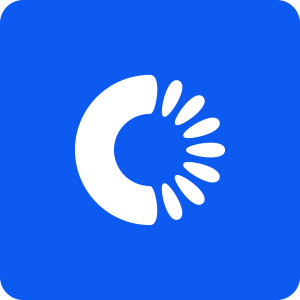When we think about some of the challenges in healthcare, we most often think of the rising cost of prescription drugs, healthcare access and the patient experience. But one important topic that rarely comes to mind is the challenges faced by the patient’s caregiver. Today one in five Americans—about 53 million people – is a family caregiver.1 In the wake of society’s growing commitment to health and wellness along with significant advancements in medicine, people are living longer than ever. However, as baby boomers age and need increased care due to chronic diseases, disability, or frailty, many find the healthcare system too difficult to navigate which places greater demands on caregivers and increases burnout.
And while caregivers are committed to managing the well-being of others, the time and responsibilities required to tend to their loved-one’s diverse needs often causes physical, emotional, and financial exhaustion. A 2020 report from the National Alliance for Caregiving and AARP revealed that nearly one in four caregivers said it’s difficult to take care of their own health, 31% have difficulty coordinating care with their recipient’s provider, and 36% describe their situation as “highly stressful.” In addition, it’s estimated that family caregivers provide a staggering $375 billion worth of unpaid care each year to their parents, spouses, partners, and friends.2
With the amount of time and money taken away from work and their respective families, caregivers are desperately looking for solutions to ease their situation while offering support and independence for recipients. Fortunately, innovations in technology are providing digital tools that reduce the overwhelming burden placed on these individuals and help them stay more connected. United Healthcare and the National Alliance for Caregiving evaluated 12 different technologies, and the category “Medication Management” ranked in the top 3 for “the greatest potential to help lessen the challenges of caregiving and ensure their loved-one are safe and getting the care they need.”3
As a leader in digital health, Perigon Health 360 is helping reduce this burden through user-friendly, remote patient and medication management tools that provide smarter, more streamlined experiences for the patient as well as the individuals that assist them with managing their health. The company’s enterprise digital platform, Medesto, offers powerful health technology to reduce caregiver burnout by integrating remote medication dispensing and physiological devices, on-demand medication tracking, and direct access to healthcare professionals.
Through Medesto, patients receive presorted prescription pods and daily medication reminders to help them stay in charge of their treatment while maintaining their independence. Furthermore, through patient granted access, caregivers can log into the Medesto mobile health app and view their loved-one’s health dashboard – allowing them to gain insights into medication compliance, vital health statistics, pharmacist interventions, and review as well as participate in communications between the patient, provider, and pharmacist. Access to this health information is transforming the caregiver’s way of life by conveniently and securely monitoring and managing their recipient’s care using home-based technology. Gone are the days of caregiver’s constantly calling pharmacies and doctor’s offices, scheduling health appointments, taking time off work, and readjusting their personal commitments to ensure their loved-one is following their medication routine in a safe and comfortable environment.
As caregivers continue to make sacrifices to improve the care of others, Perigon Health 360 will continue to implement a more holistic and equitable approach to health using effective, efficient, and affordable methods to enhance the quality of life for patients and the individuals who care for them every day.
Sources:
1. aarp.org; Caregiving in the United States 2020
2. himss.org; Caregiver Burnout: Technology Brings Help and Hope.
3. unitedhealthgroup.com; Bringing Caregiving into the 21st Century.



